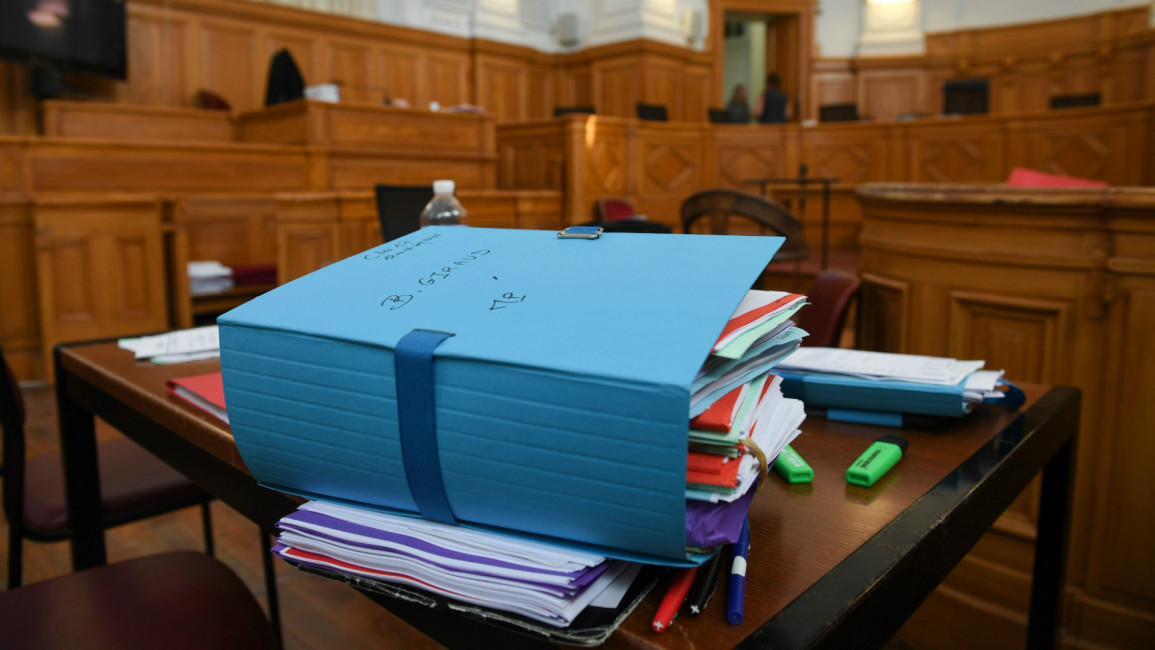Syria war crime plea accepted by French court
A Paris court has accepted a legal complaint from human rights groups accusing the Syrian regime of war crimes.
The criminal court has opened an investigation and appointed an investigative judge to probe charges of "torture", "crimes against humanity", and "forced disappearances".
The legal complaint was presented by the International Federation for Human Rights (FIDH) and the International Human Rights League on behalf of French-Syrian nationals Mazen Dabbagh, 57, and his son Patrick, 20.
Detained without explanation
Mazen Dabbagh was working as principal of a French school in Damacus when he was arrested in 2013, only 24 hours after his son Patrick, a sociology student at Damascus University was detained.
“We have been trying to find out the truth for three years. No explanation was ever given to their detention. Now we want to establish criminal responsibility and who was responsible for their abduction and torture,” said Clemence Bectarte, a lawyer at FIDH working on the case, speaking to The New Arab.
“Dabbagh (Snr.) was taken at midnight from his home by men who claimed to be from Syria’s air-force intelligence. No explanation for either of their detentions were ever given,” explained Bectarte.
FIDH, who began to investigate the case after being contacted by relatives of the Dabbaghs, say that the father and son duo were initially taken to a facility in Damascus. However, they were consequently moved, with their current whereabouts unclear.
Relatives of the detained have expressed fear that they may have been victims of extrajudicial execution.
In 2015 the Commission for International Justice and Accountability (CIJA) announced that it was building prosecutions for any war crimes tribunal against the Syrian regime in the future having carried out a three year covert investigation inside Syria to gather evidence.
Twitter Post
|
Building a body of evidence
The process involved working with a team of 50 Syrian investigators on the ground - including members of the armed opposition - in order to obtain evidence and smuggle documents out of the country.
However, to date few lawsuits against the Syrian regime have been filed during the country's six year war.
One notable example occurred in July when the family of Marie Colvin, a US journalist killed reporting in the city of Homs in 2012 filed a lawsuit in Washington against the Syrian government. They allege that Colvin was targeted and killed by the Syrian government for reporting on human rights abuses committed by the Syrian government in the Baba Amr district in Western Homs.
Attempts in the UN General Assembly to establish criminal proceedings against the Syrian regime before the International Criminal Court on accusations of war crimes have been repeatedly blocked by Russia.
As a result, explained Bectarte, those seeking to prosecute the Syrian government have begun to level individual cases through national courts, in countries including Germany, Sweden, the UK, and France.
“The conflict has been going for nearly six years. There are a high scale of violation of human rights. These individual cases can develop a body of evidence for the future, and one day hopefully be used in processes of transitional justice in Syria,” said Bectarte.
One considerable portfolio of evidence detailing the Syrian regime’s human rights abuses consists of over 6,000 photographs of detainees tortured to death, smuggled out of Syria in January 2014. The photographs were compiled between 2011 and 2013 by a former Syrian military photographer known only as “Caesar” who first downloaded the files from a police computer in Damascus before leaving the country.
Bectarte noted that the refugee crisis had led the presence of many Syrians in Europe ready to testify against human rights abuses committed by the Syrian regime, and other armed actors in the conflict.
“Their testimony helps build the body of evidence. Of course the crimes should be tried in Syria but this is currently not possible … It will take time.”



